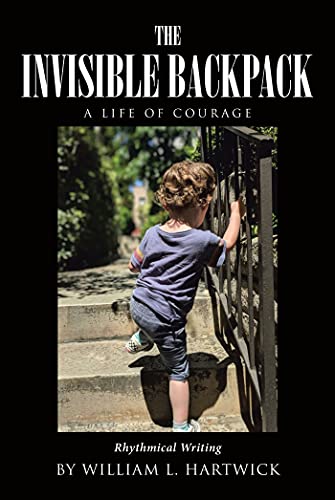we thought we weren’t all that i was was a compilation of what i wasn’t: how we bounced a deflating rubber ball to and fro across white faded lines on the schoolyard blacktop talking and talking about trivial things that led us to cover each other’s cool gray surfaces so when finally the romantic disruption we had waited for came we realized there was this empty sphere of dry air below the other’s surface and plasmatic energy, unstable, below our own, a dammed-up deluge like a sip of carbonated drink; rising anticipation for the syrupy taste then the spiky needling in the soft skin of your cheeks as you attempt to swallow and swallow as the drink goes flat in your mouth and still you carry the lingering taste and the memory of craving junk food; now you wonder what was the appeal and the firmest memory you retain is that of the deflating rubber ball, worn, durable, and unremarkable.
Category Archives: CHAOS
Poetry from Eddie Heaton
my health matters too down in the hard black earth before the shadow-gifted body- shaming shrieks with future rank refused among the fresh night blossoms on a cork-popped psyche stashed by means you guessed were taken back on board you eat what’s yours and listen for today is just the ticket for a hunt through city streets you seem to recollect a flock of bats you made some conversation with the sith you welcomed sharp incursions of the mob her mouth’s the thing you seemed to say was viscous there was flowing under glass was then bizarre in vain so let his head fall back on bones and set aside more surface bursts the searching worse the land was hot she nursed him to his smooth and privileged form then edged his syncopated back a corpulent in ball and chains they wrapped him up in veneration and in pink to table and to then compare with all the fuck- ups on our screens a teenage fantasy for sale a part of that a piece of his the warmth and then the getting-good it’s morning if it’s bright enough the house anxieties that led to fill the plague graves early on are like a growing list of foods their scatterings were surely doomed and sometimes tampered with in sheds we spoke lovingly of roe deliverance through a glancing-off of riddles in one untidy corner of the mind delusions widely disapproved of as yet others are reluctant to placate themselves at all and almost perish with their pleadings and denial and you might even get tugged off when once the tired poetry arrives with stomach botch the wilder sort and if there is a god or not you stumble through your stratagems hallucinating forest fires and now she’s troubled by her arms again and only so much scribbling through the pain can halt this placid streak if that’s allowed to gift you motivation but it’s not like that at all it’s milk two sugars then the mescaline arrives and long-term prisoners are forced to stream some aspects of that vicious night with pushing motions of their blood-stained hands while pools of septic effluence gush out from washed-up dreams so short on fatherly affection yet again but this time on the railway banks or rolling down the river tyne with bark from ripped-up holy trees while glancing round at comic-book type treatments line by line or understanding great cathedrals in the season of the wight the un- remembered and the meaningless shape up the artist in you rides the london eye partly political keep them squaddies on their metal by the by no longer visible like beasts persuaded through your efforts down against the rusted factory gates while dipping bending showing all the glowing stacks of burnt remains of shamed officials on bell-bottom nights without the magic mountain camp with boots that shine like bathroom taps or crawled neck residue that thrashed was where it started then was torn the thing that’s feared the most was taken from a point on stolen braille maps by the river’s scent a three-lane highway out of nowhere on a mountain bike or steaming thick and creamy cabbage by the light above a patch on posh boy’s vast inherited estates that’s got to be extruded from a space that’s partly labelled by the past and having spent the morning playing human chess in tunnels or a maze it crawls a london boy by chance unorthodox supplies a big old grub to catch the only interspecies still at large perhaps the bloodied swimming pool has given up its secret to those corresponding principles at last and with an excess of its like to read a telepathic slow-descending self-erasing spine and side-lined masks a crudely nauseating metronomic tick within its zone beyond the pale with wish- fulfillment at its core while washing out the tupperware in fits who knows where morning is before the shrivels week by week still hating thatcher as they weed their beds those nervous tits have been out there in charge of landscape-format glass-based art events an installation of suspended things that much was visible along the curved beak’s nesting lost in limbo and was long-suspected by his friends of putting tories in the ground without permission be widespread he states the high mind's ornament deserves the block and matter of the hours it is suggested that the bold take notes on unscratched holograms with common praise in some hard past was smoking rocks and shooting up on city streets with skipping ropes and spinning plates while those of us who did refuse still wonder when and why our hormone levels peaked
Eddie Heaton studied innovative and experimental poetry under the tutelage of post-modern poet and educator Keith Jebb, achieving a first-class honours degree. He also won the 2021 Carcanet Award for Creative Writing. His work has been published in Blackbox Manifold, Otoliths, Lothlorien, Focus and Fold Editions
Twitter: @edwardHeaton9
Poetry from William Hartwick

Why Me? I have Tourette’s syndrome and bipolar disorder yes blessed with them both And once I was even arrested under oath One is neurological no one can explain The other is caused by the unnecessary pain Normal basic an average are words of dismay I’m here to share with you there is another way No need to judge another for how they make you feel Take a look in the mirror and see what is real Love is truly the answer thank you God above Even Sigmund Freud said hard work and love As we open up our backpacks and take one thing out You can always put it back in if you have a doubt Life is not easy no manual given at birth Yet 8 billion humans exist together on earth There is no one like you nor anyone like me Put one foot in front of the other and soon you shall see That God above has never let us down It’s time to hold hands again my friends in each and every town Trauma It happened at birth a coma for me, for others I'm not sure The fact of the matter is, there is no cure It comes in many avenues, from physical to the mind There is no defining it, no particular kind Some have it for a lifetime, some right away If we don't deal with, forever it will stay Exposure to so many has really made me ache Accepting my own trauma has really made me wake The pain is deeper than I ever thought it could be As I open my heart to others they can clearly see How much I am hurting over this recent tragic loss Not only losing my wife but dealing with a horrible boss What I am realizing is that I am not alone Coming together with complete strangers and seeing how they have grown Gives me inspiration way beyond belief Never did I imagine there could be so much relief I thought I was alone suffering this awful pain Thinking I was crazy, literally going insane Listening to their stories as they share their lives with me Has surely made me realize that I can plainly see That trauma is a creature that comes in many ways I am thankful for this experience and cherish all my days As I wake each morning wondering what the day will bring And listen to birds outside my window sing I can't help but think and hope that each day brings a smile To everyone's lives that's here on earth for only a little while I pray to God each night as I lay my head down to rest That ALL our trauma lives will turn out for the best My trauma is forever, but my heart is now stronger For human bond and love of life will last even longer Tourette's and Bipolar Disorder, Yes, Both Hey, Darin and Marcy, I finally found out I have Tourette's, holy shit! "You can have them all little sons of bitches and get away with it!" In Tau Kappa Epsilon, my fraternal name was "Twitch." A term of endearment, a nickname I will never ditch Living thirty-five years of my life, always wondering why I would go from complete laughter to a sudden tearful cry Teased my entire childhood mainly by those we "trust" Adults were the worst of all; high school was a fucking bust Called a son of a bitch by Dale Thomas and literally kicked out of class And Jeff Nynehouse, "I can't handle you on the bus," what a fucking ass My label given to me has long been misled Even those who have this "gift" have been misled Medication was prescribed; what a fiasco that became It is not okay for medical professionals to cause "US" to go insane The only neurological disorder known to those prescribing drugs Sorry, Dr. Narus, LOVE is the answer; please start prescribing "hugs" "I want some of what you're on, can I have some SHIT?" "I have Tourette's, you want some of IT?" My final straw came when I was arrested and thrown in jail "DUI other than alcohol," just try and make bail Before you judge those of us who suffer from this pain Think to yourself, "What do I have to gain?" We all have a disability; just take a look in the mirror "Can I walk on water?" or do I just have a fear? How to accept others, no matter the twitch, the glasses, or the creed Thank God for those who can understand why I choose to smoke weed It is the only true relief I have ever had other than LOVE "Footprints in the Sand," my friends; thank you, God above So often people walk away or simply want to ignore Maybe Tourette's will go away, we won't have to deal with "THEM" anymore To all of you that have this "gift," the one that makes me, ME Don't ever let them put you in the "box," live and be free I am proud of my life each and every day Of course, there are times I think, make IT go away" So when you are passing judgment or "choosing" to discriminate You are one of "THEM," you are causing the HATE!
This poem is from William Hartwick’s book The Invisible Backpack. which is available for order.
The Invisible Backpack is a labor of love created from a life-long struggle to come to terms with who the author is and accept himself as he was meant to be. We are all born with an invisible backpack on our backs. It is where we put all the hurts of life. When we are young and courageously climbing the stairs of life, it is extremely light, and we really don’t know it’s there. As we get older, it gets heavier with whatever pain, grief, or trauma we experience. Unfortunately, we resist taking these feelings out of our backpacks and let go of them. Some of us hold onto them so tightly, we forget to make room for the things that lighten our load…forgiveness, acceptance, tolerance, and love. For if we can put these items in our backpacks, it will cancel out all of the negative things we’ve been holding onto, and our life journeys will become much lighter.
Poetry from Mahbub Alam

The World's Agencies The world is divided into different agencies In these areas there happen so many incidents, accidents Planned or unplanned The cat's-paw tinges bloodying with the sharp nails The staffers think staring ----- How the role-play of a cinema's villain! I am the sufferer who is snatched away Threatening with the arms all the way And the passers-by only watch Having nothing to say nor a step for protection We are living in such an unsafe zone We are here, where we think over --------! Chapainawabganj, Bangladesh 14 March, 2023 The Sea Cafe Hello, let's have our snacks altogether The unknown has invited us Let's shook hands and enjoy the coffee break Now the time is to rise in the midst of the sun and the moon We have already reached our long pathway goal to our journey Holding tight the hands not to leave each other Live together, walk together, work together and sleep together Forgotten! Let's make a dancing stage --- We all get lost among ourselves in the world of forgetfulness- The Sea Cafe. Chapainawabganj, Bangladesh 17 March, 2023
Poetry from Graciela Noemi Villaverde

CONSTANCY Hey, the voice of a thousand sighs/ return your light to me Turn your eyes, before it is left, all dark, In blind fog/ I'm not just your work Your masterful craft. I am also your part, a thousandth of an effort Something that flaunts in the trade. My participation is in finiteness/ An irreversible dam, that tried to reverse, The massive balance of the heavens. I am your nostalgia, there is no doubt. I am your way of having wanted to be time. I am your total constancy. Graciela Noemi Villaverde Argentine poet writer based in Buenos Aires She has a degree in letters, author of seven books in the poetry genre. She has been awarded several times worldwide. She works as the World Manager of Educational and Public Relations of the Hispano-Mundial Union of Writers UHE and World Honorary President of the same institution.
Poetry from Maja Milojkovic

YOU WHO CREATE UNREST! You who are the servant of darkness, hide behind wealth, power, and lies but I'm immune to it. You can't take away my right to freedom, my life belongs to God, you can't ruin my poem, woven from prayerful thoughts sung in praise of all poets which breathe in the rhythm of peace for the whole planet. We are poets like flowers, we sprout from tiny seeds, carried by the wind, rooted in the ground. Watered with water from rainy clouds sun-breastfeed. Our common strength is in the beauty of thought, about equality about satiety in the absence of war. We build heavenly gardens from letters and send clear messages to everyone. Do not be afraid people, let the peace of God reign! You, who are hidden, will not stop causing people unrest and various diseases, but I will not stop, I will defeat you with a poem. Verses have the power to melt all hard hearts, to forget what evil is, when in the prayer song for forgiveness, they find their peace. LOVE Insects are attracted to the street light at night, so the heart that is open to the love of this world, the closer to the source of the street light dies because of the desire to unite with something that is doomed to die. Maja Milojković was born in 1975 in Zaječar, Serbia. She is a person to whom from an early age, Leonardo da Vinci's statement, "Painting is poetry that can be seen, and poetry is painting that can be heard," is circulating through the blood. That's why she started to use feathers and a brush and began to reveal the world and herself to them. As a poet, she is represented in numerous domestic and foreign literary newspapers, anthologies, and electronic media, and some of her poems can be found on YouTube. Many of her poems have been translated into English, Hungarian, Bengali, and Bulgarian due to the need of foreign readers. She is the recipient of many international awards. "Trees of Desire" is her second collection of poems in preparation, which is preceded by the book of poems "Moon Circle." She is a member of the International Society of Writers and Artists "Mountain Views" in Montenegro,and she also is a member of the Poetry club "Area Felix" in Serbia.
Poetry from Emina Delilovic-Kevric

Borders The mother leans against the sad wet strings We last a long time-holding time in a transparent suitcase For handles that pierce the skin, bones, blood flow and go away all at the same time I am not good at this designing at all I speak to the body I'm dragging along the blank paper The body they call my mother A quiet black dress filled with the burst of distant stars I can't do anything in creative expression classes As a representative figure of absolute human evil I draw wires around my mother, around me, around the house Around the tongue that can't help me anymore To make something out of swallowed pain I will never be able to bring back the dead, nor measure your graves Where does your grave end and mine begin? Behind the camp there is still an endless field of wires Hands that outgrow it are just a myth Souls are always in love with floating How many times have you tried to teach her to speak? They will ask the mother, and I will wait Drawing line by line Begging her to hug me Begging her to go back home
